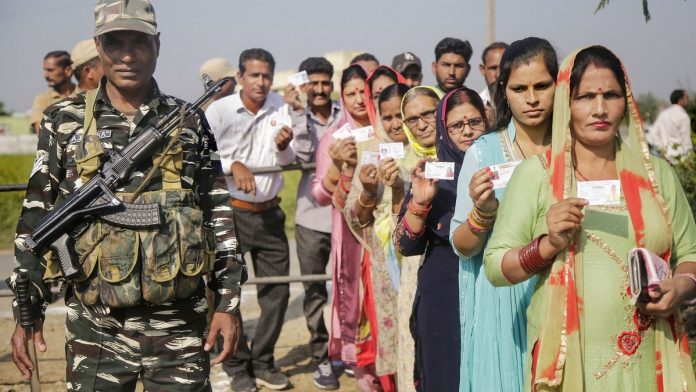The District Development Council (DDC) polls kickstarted yesterday in the union territory of Jammu and Kashmir, and are the first large-scale democratic electoral process to take place after the abrogation of Article 370 and revocation of Kashmir’s special status last year. A multiplicity of factors has contributed to the much-touted People’s Alliance first declaring to boycott the said elections and subsequently contesting them under a rainbow alliance of borderline separatist parties. Those who reported from the ground the conduct of the first phase of DDC polls yesterday unanimously stated that enthusiasm and a sense of fervour could be witnessed among the voters, who braved the winter chills to stand in ques and cast their ballot.
The enthusiasm was particularly high among the set of voters who have been bestowed with democratic rights only after the revocation of Kashmir’s special status. Settlers from West Pakistan who came to India in the ’70s were for so long deprived of democratic rights in the erstwhile state of Jammu and Kashmir. Now, with the abrogation of Article 370, West Pakistan refugees, Valmikis, Gurkhas, and others have been made eligible to vote in local elections, purchase land and apply for jobs in Jammu and Kashmir, and besides these, they can also contest elections. Currently, there are over 1.5 lakh refugees in the Union territory.
Read more: Why BJP is going to script history in Jammu and Kashmir this time
Such a number of refugees, voting for the first time in Jammu and Kashmir can easily influence any election to a large extent. Unsurprisingly, almost all such settlers which media persons spoke to said that they were thankful to the Modi government for giving them electoral rights, of which they had been kept deprived for the past many decades due to the vested interests and insecurities of a few. “We have heard the words equality, justice and liberty, and today we are feeling the true meaning of these words,” said Sujati Bharti, a young voter from the West Pakistan refugee community.
Bishan Dass (67), another voter from the community, said that he did not want to remember the past and instead, pinned hopes on a bright future in which his grandchildren could get jobs without moving outside. “We feel empowered. Earlier nobody used to come to our places to seek votes. Today, every candidate came thrice knocking our doors,” he said, flashing a victory sign. Such voters, participating in an electoral process of India for the first time, are spread across R S Pura, Akhnoor, Samba, Hiranagar and Jammu.
Read more: The Gupkar Alliance knows that it will lose badly, so it is already preparing for a moral victory
For obvious reasons, political parties who fight polls on toxic sub-nationalism, borderline separatism and anti-India rhetoric will find the participation of such settlers an eyesore, as they have the ability to dent the electoral prospects of some political fronts. For over 50 years, such people were deprived of their basic electoral rights, and those who kept democracy out of bounds for West Pakistan settlers will now definitely pay the price. The first phase of DDC polls in the union territory saw close to 52% voter turnout.
